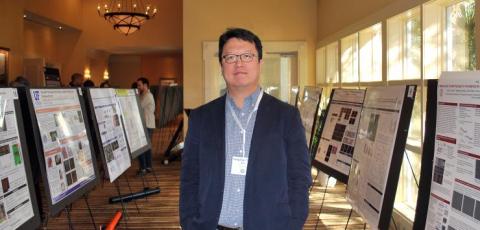YongTae Kim, a researcher in the Petit Institute for Bioengineering and Bioscience at the Georgia Institute of Technology, has been awarded an R21 grant from the National Institutes of Health (NIH).
Kim, who is an assistant professor in both the Woodruff School of Mechanical Engineering and the Wallace H. Coulter Department of Biomedical Engineering at Georgia Tech and Emory, will use the two-year, $424,000 grant to leverage his team’s research, which is focused on mitigating Alzheimer’s disease.
“Our study outcomes will serve as a foundation for translating the basic research and technology to the clinics, accelerating advanced central nervous system delivery of therapeutic and diagnostic agents,” says Kim, who is collaborating with Srikant Rangaraju, a physician-scientist who is an assistant professor in the Emory School of Medicine’s Department of neurology.
Rangaraju, a board-certified neurologist, is a trainee of Alan Levey, director of Emory’s Alzheimer’s Disease Research Center, who will serve as consultant and advisor on the grant.
Currently, the disease-modifying effects of therapeutics on Alzheimer’s disease is hindered by poor central nervous system penetration across the blood-brain barrier (BBB). But Kim and his fellow researchers believe they can overcome that obstacle with a better system of delivering precious therapeutic payloads.
“The goal is to leverage our engineered nano-carrier, enabling sufficient penetration of a small molecule inhibiting microglial Kv1.3, thus attenuating neuro-inflammation for Alzheimer’s disease treatment,” Kim says.


